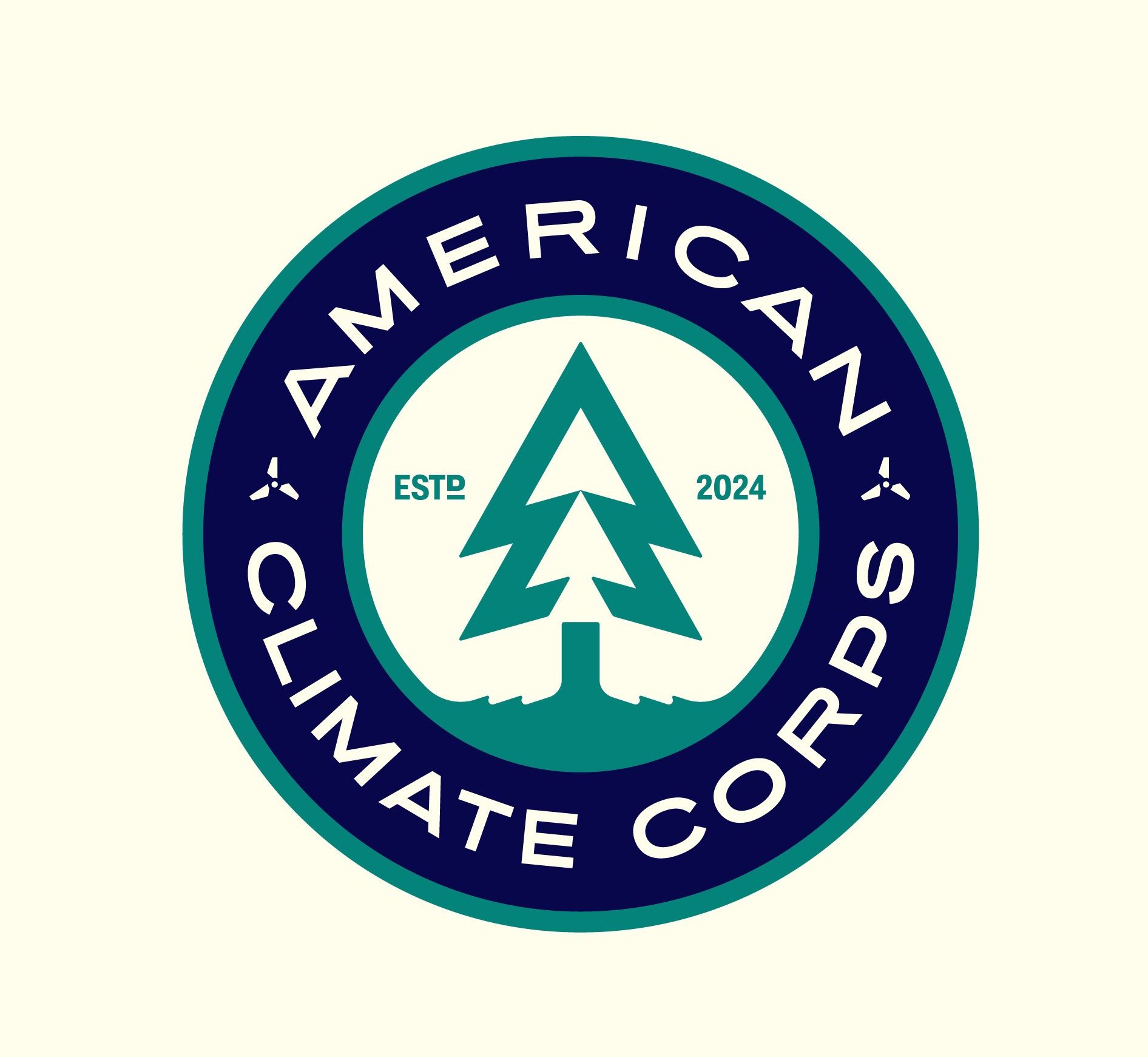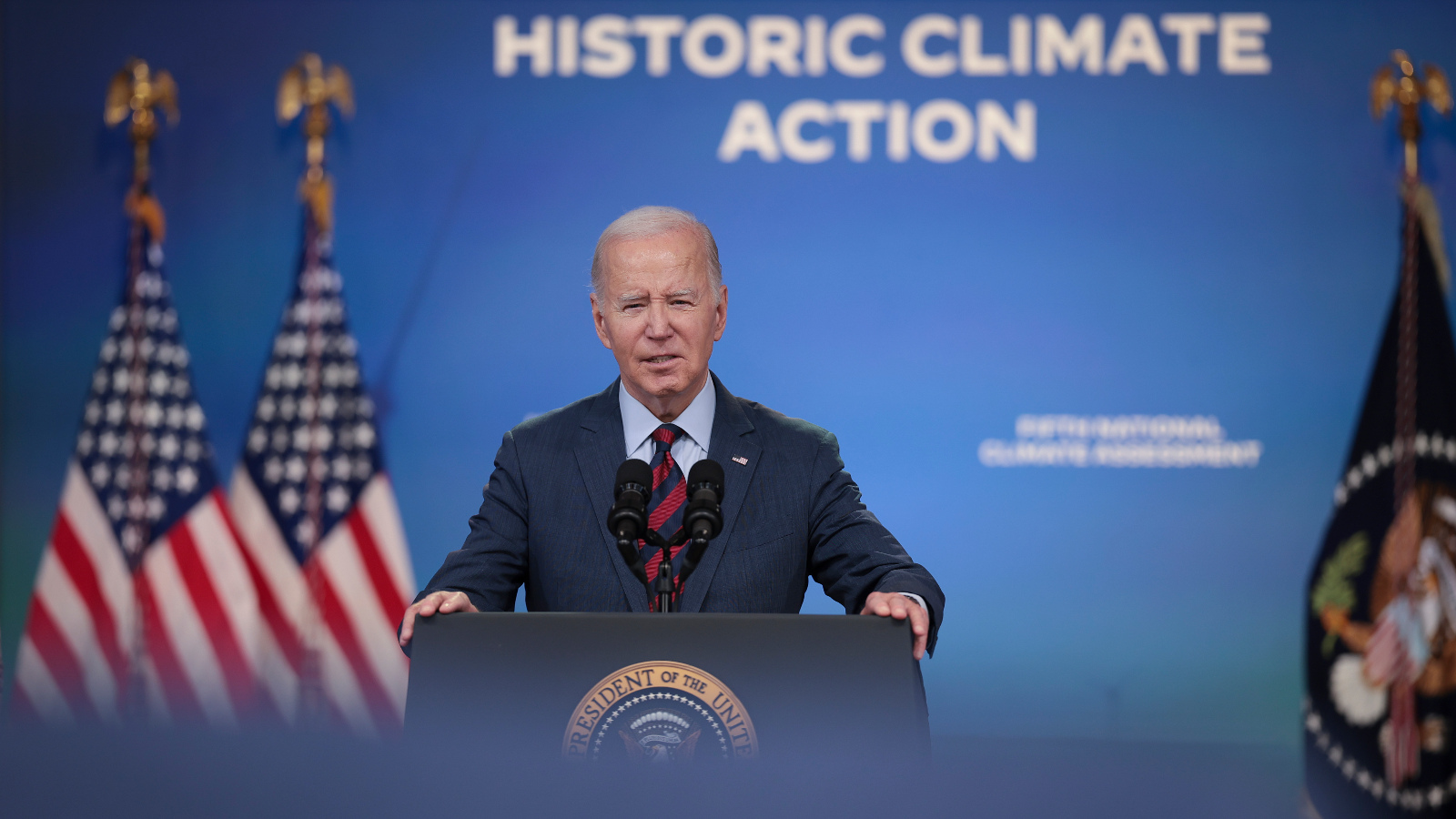The long-awaited jobs board for the American Climate Corps, promised early in the Biden administration, will open next month, according to details shared exclusively with Grist.
The program is modeled after President Franklin D. Roosevelt’s Civilian Conservation Corps, launched in 1933 to help the country make it through the Great Depression. The positions with the new corps could range across a number of fields including energy-efficiency installations, disaster response preparedness, recycling, and wildfire mitigation.
The White House plans to officially launch an online platform in April. At first, only a couple of hundred jobs will be posted, but eventually up to 20,000 young people are expected to be hired in the program’s first year. Interested candidates can apply to the positions through the portal, and the majority of the positions are not expected to require experience.
“The American Climate Corps is a story of hope and possibilities,” said Maggie Thomas, a special assistant to the president for climate change. “There’s an incredible demand signal from young people who we see as being put on a pathway to good-paying careers.”
That path could include work such as installing wind and solar projects, conserving energy in homes, and restoring ecosystems, such as wetlands, to protect towns from flooding. Thomas announced a logo for the program at the Aspen Ideas climate conference in Miami on Wednesday.

The American Climate Corps has wide support, meaning that those few hundred open spots available next month might fill up quickly. Some 71 percent of voters approve of the idea, including well over half of Republicans, according to polling Data for Progress conducted last October. And previous polling has shown that half of likely voters under 45 would consider joining the program, given the chance.
“We’re absolutely confident that there are millions of young people who are interested in these programs,” said Saul Levin, the legislative and political director at the Green New Deal Network.
That demand was evident at a series of public listening sessions held by the White House earlier this year. The events were oversubscribed and ran over time with participants eager to sign up for potential jobs, Thomas said. Given the demand, President Biden promised to triple the size of the corps in a decade at his State of the Union speech last week. His newly proposed budget calls for an $8 billion expansion of the American Climate Corps to employ an additional 50,000 corps members per year by 2031.
Still, that’s nowhere close to the dreams some progressives had for the program: Representative Alexandria Ocasio-Cortez of New York had hoped it would put 1.5 million Americans to work addressing the climate crisis. Nor is it comparable to the original Civilian Conservation Corps, which hired 3 million men to plant billions of trees, fight forest fires, prevent erosion, and build trails you can still hike at national parks today.
“We’ll say this again and again — hundreds [of positions] is not enough,” Levin said. “We’re talking about a country on fire. We’re talking about people not being able to breathe the air outside. So the scale needs to be dramatically ramped up.” He sees the president’s call for billions in funding for the program as a signal that the administration is committed to expanding it.
The current version of the American Climate Corps is in many ways a compromise of Biden’s initial plans to revive that program and update it for the problems of the 21st century. The corps was initially funded by the Inflation Reduction Act, the landmark climate bill Biden signed in 2021. But that funding was stripped from the bill before passage. As a result, funding for the American Climate Corps had to be cobbled together from existing funding from seven agencies, including the Environmental Protection Agency, the Department of Energy, and the Department of Interior.
One source of funding for these positions is the $2 billion in environmental justice community grants allotted to the EPA in November. The EPA grants could potentially be used by a grassroots community organization that, say, is deploying air monitors in neighborhoods, Thomas said. The group could apply for funding from the EPA and then use the money to hire a small team of people through the American Climate Corps website.
“We’ve been trying to think creatively about the sources of funds that we are bringing to the table to ensure that we’re building justice and equity into the fabric of the American Climate Corps,” Thomas said.
Whether Congress approves Biden’s request for $8 billion to expand the corps is very much up in the air, but Thomas hopes that the rollout of the program in the coming months will make its popularity clear.
“Once you see the impact of what the American Climate Corps will be in communities across the country, it’s going to be really hard for members of Congress to deny the incredible opportunity that exists with a program like this,” she said.
This post has been updated.



